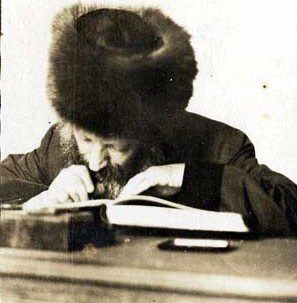On National T’shuvah
by Rabbi Chanan Morrison (ravkooktorah.org.)
“For some time I have been struggling with an inner conflict, and a mighty force impels me to speak about teshuvah (penitence). All my thoughts are focused on this topic. Teshuvah holds a primary place in Torah and in life. All the hopes of the individual and of society depend on it.”
One student reported hearing Rav Kook say, “I worked extensively on Orot HaTeshuvah. Whoever studies it properly will find light in every word.” He also declared: “Orot HaTeshuvah should be be studied endlessly.”
What is so special about the book’s outlook on teshuvah?
Teshuvah — a Return to Life
Orot HaTeshuvah illuminates the concepts of sin, punishment, and penitence. It explains that sin primarily harms the one who sinned, as it cuts him off from the roots of his very being, from the light of his soul. This estrangement is sin’s worst punishment. Teshuvah, on the other hand, redeems the sinner from this darkness. It rejuvenates him, restoring his previous state of life and joy.
The word teshuvah literally means “return.” It is not an escape from the world. On the contrary, it is “precisely through genuine, pure teshuvah that we return to the world and to life” (Orot HaTeshuvah 14:30).
Already in his introduction, Rav Kook described teshuvah as an underlying force that influences all aspects of life, not only the realm of the sacred: “Teshuvah holds a primary place in Torah and in life.” Thus one who frees himself from unhealthy habits – this is also a type of teshuvah.
Additionally, Rav Kook posited that this powerful force is not limited to the failings and triumphs of the individual. It also applies to failures and successes of the nation and the entire universe: “All hopes of the individual and society as a whole depend on it.”
National and Spiritual Revival
Rav Kook firmly believed that a secular national revival, the entire program of rebuilding the Land and the nation, could not succeed without a parallel revival in holiness, with lofty manifestations of this holiness expressed in both personal and public spheres.
But what path would lead the generation of rebirth to the gates of teshuvah? The routine approach is doomed to failure. One cannot reach out to the idealistic youth of such a generation, brimming with life, vigor, and creativity, with a severe demeanor and punctilious demands of small, everyday deeds — demands that they consider to be a sign of weakness and a feeble spirit.
No, the generation must be awakened via an optimistic spirit of greatness and courage. “Teshuvah comes not to embitter life,” Rav Kook taught, “but to make it pleasant” (15:6). “Teshuvah is essentially a return to our origins, to the source of supernal life and existence in their wholeness” (12:8).
In an article printed in HaYesod in 1934, he explained:
“Teshuvah is the great key to redemption. Many things inhibit teshuvah, but the major obstacle, particularly to collective teshuvah, is the misconception of Teshuvah as atrophy of the soul, as the enfeebling and debilitation of life. This false image also impairs the teshuvah of the individual. But more than anything, it hinders collective teshuvah, the teshuvah of the nation.
“We must disclose the secret that the genuine teshuvah of the entire nation of Israel is a mighty, powerful vision that provides reserves of might and strength, imbuing all of our spiritual and pragmatic values with a lofty spirit of vigorous, surging creative energy from the power of the Rock of Israel. This living teshuvah flows not from isolated, fragmented souls, but from the treasury of the nation’s collective soul, Knesset Yisrael …. In this way, the united soul of Israel is prepared to return to its former strength, as in days of old.”
(Sapphire from the Land of Israel. Adapted from Mo’adei HaRe’iyah, pp. 52,55; Celebration of the Soul, pp. 26, 28-29.)






